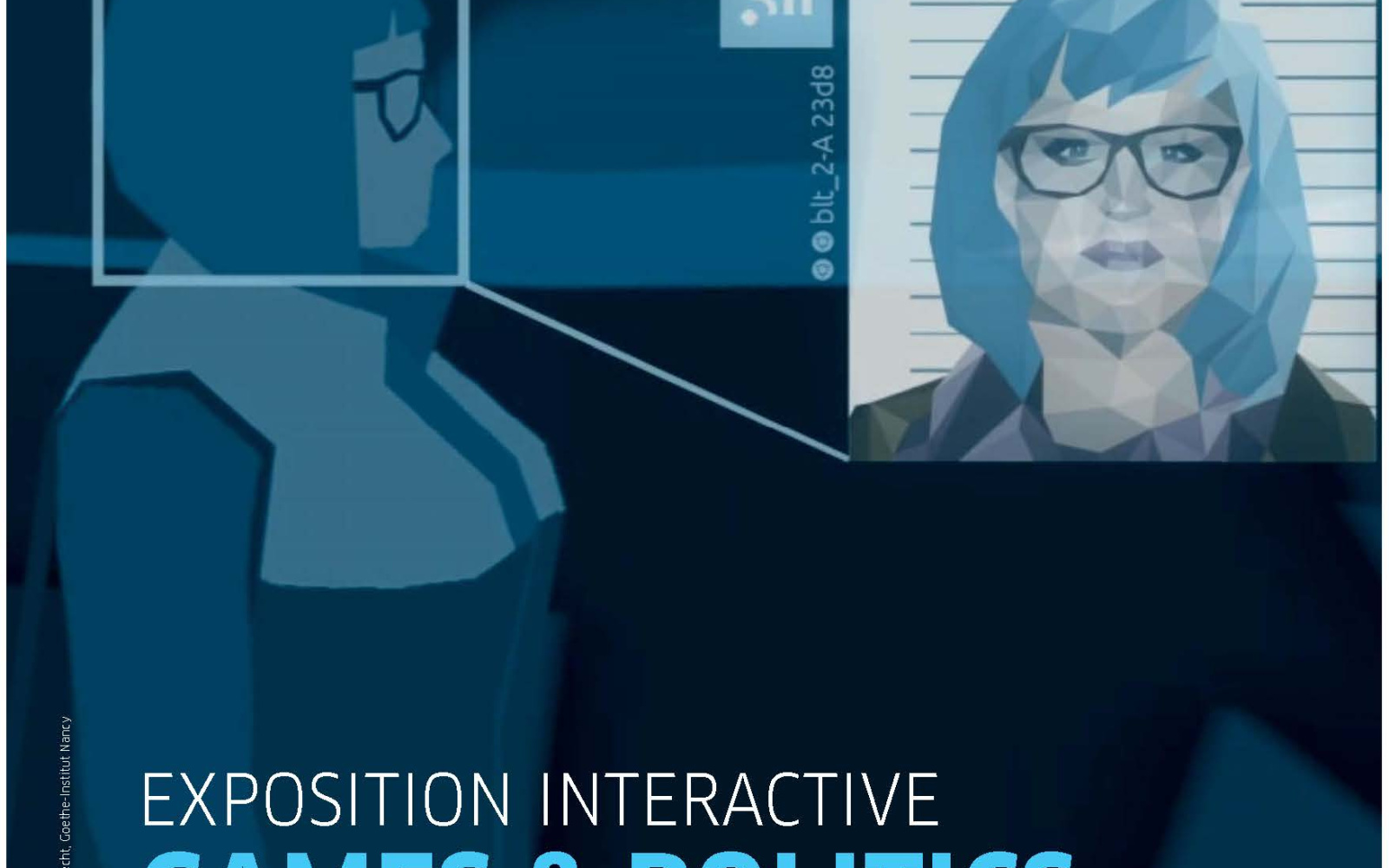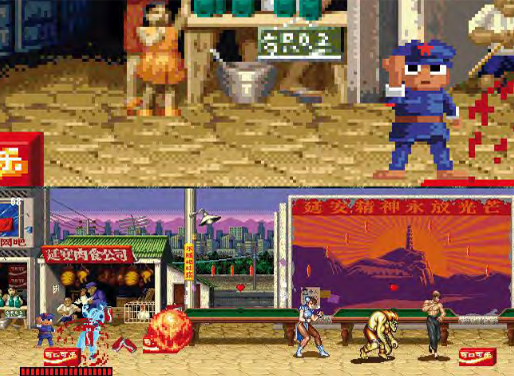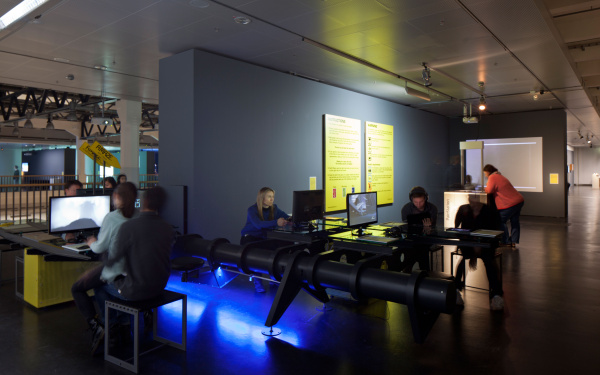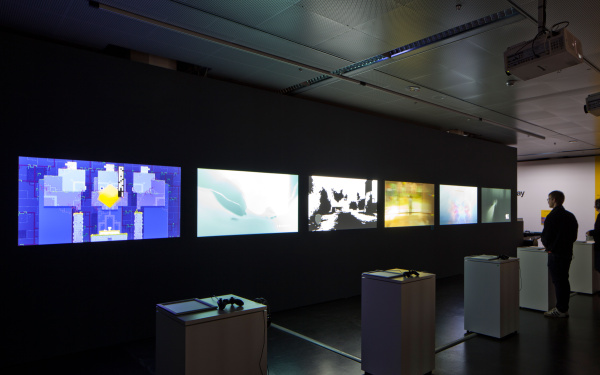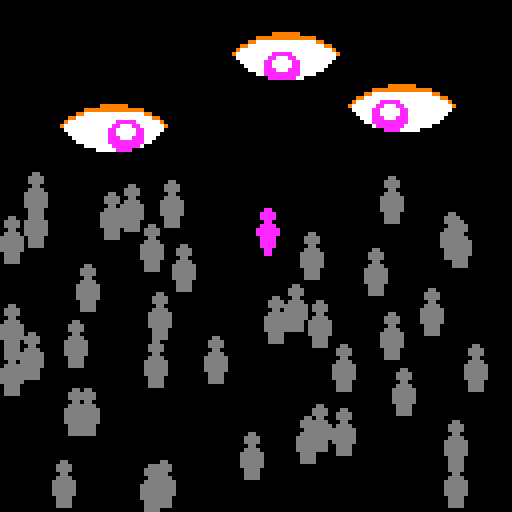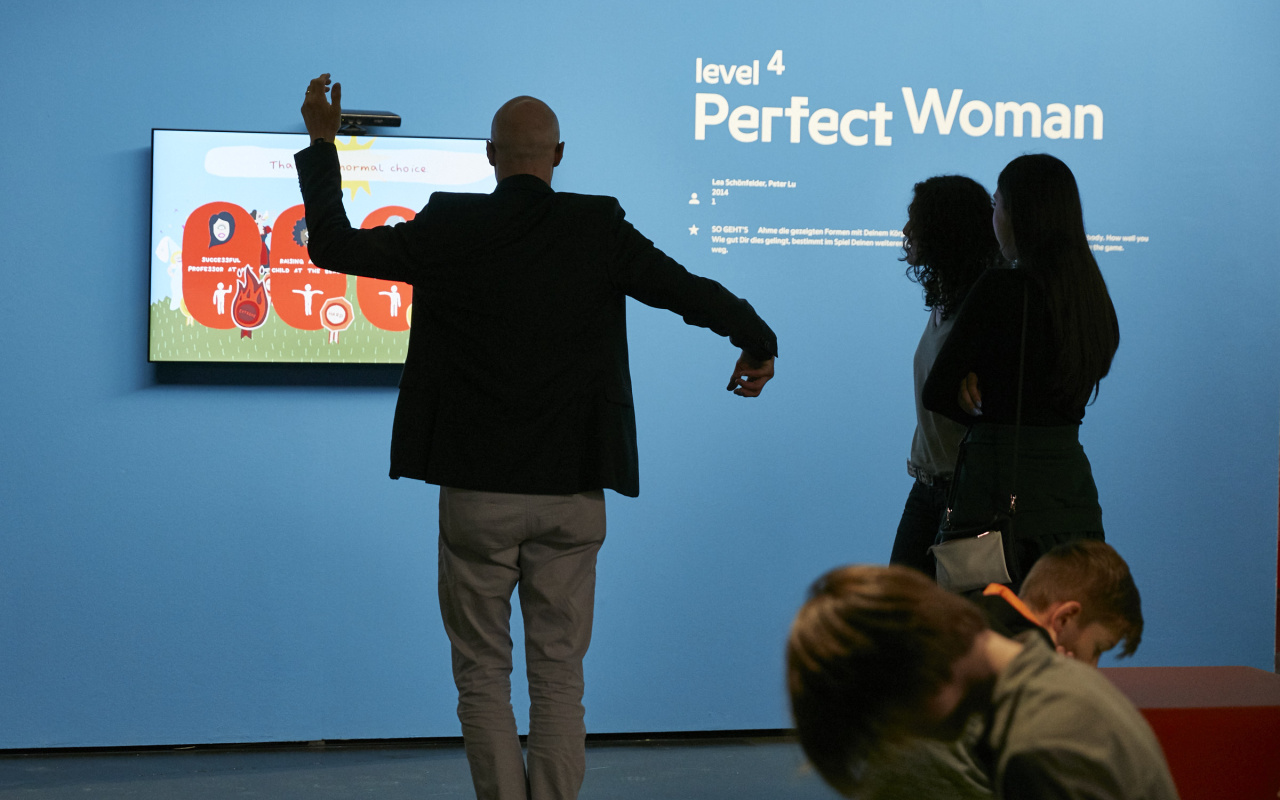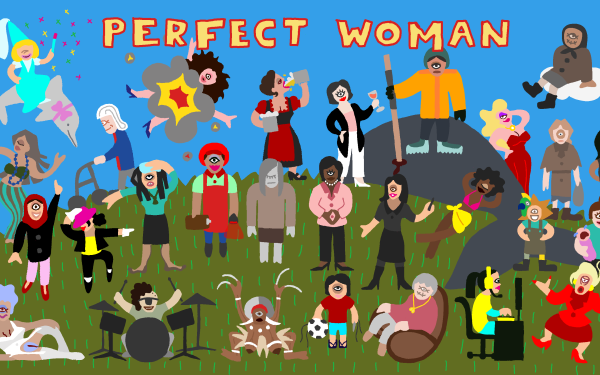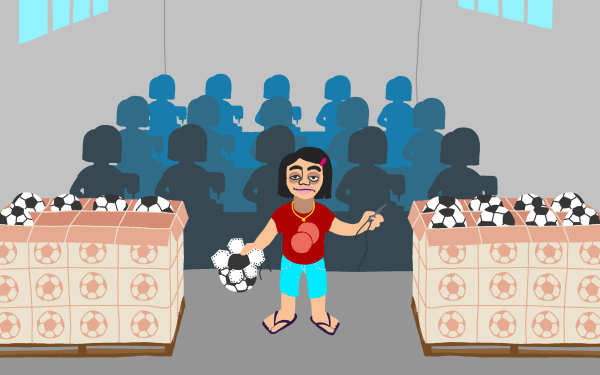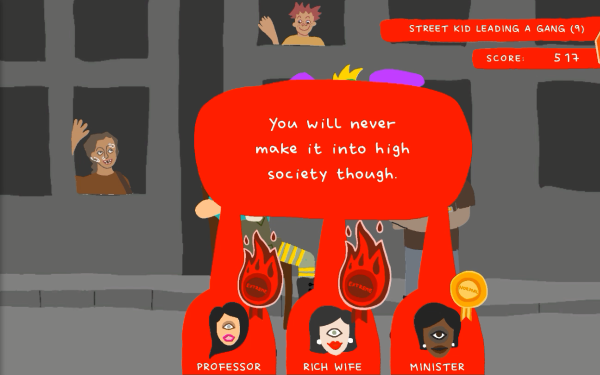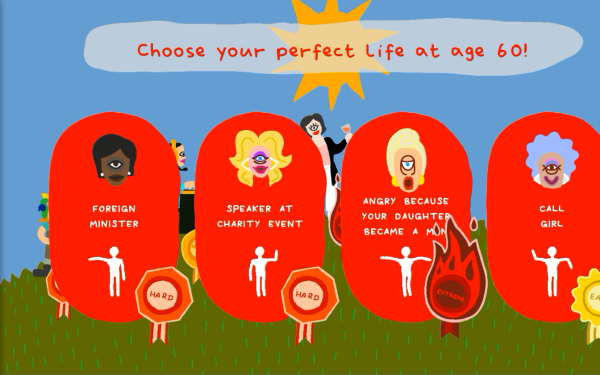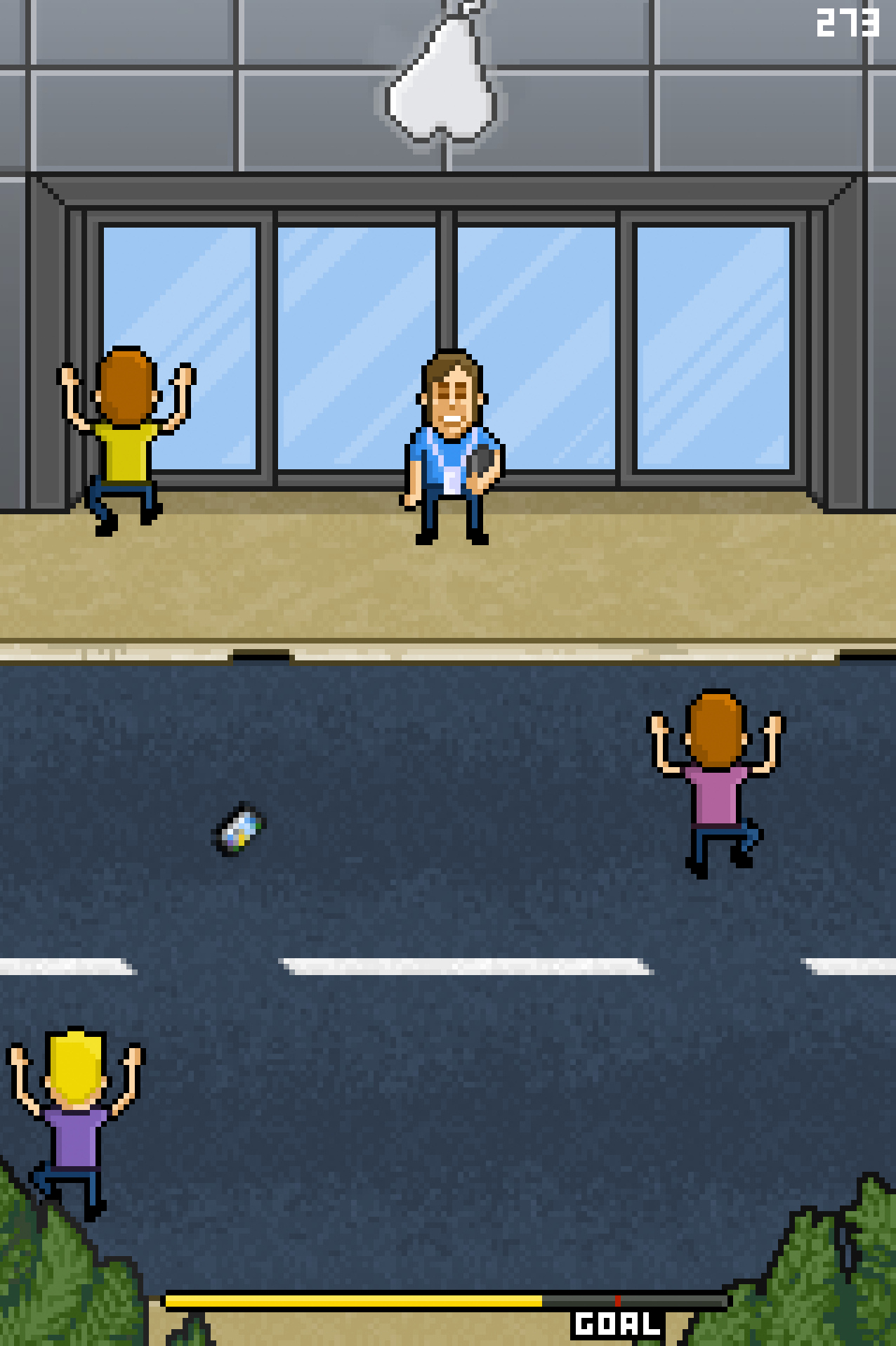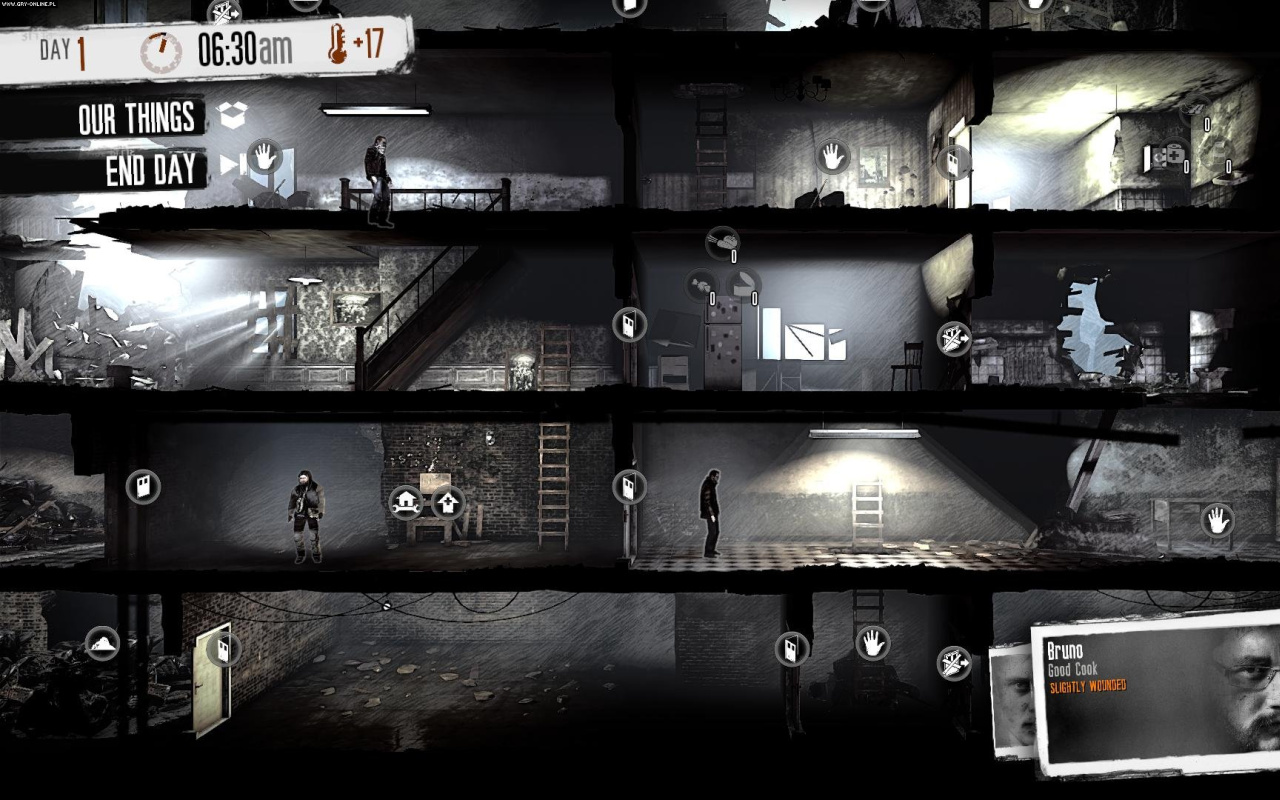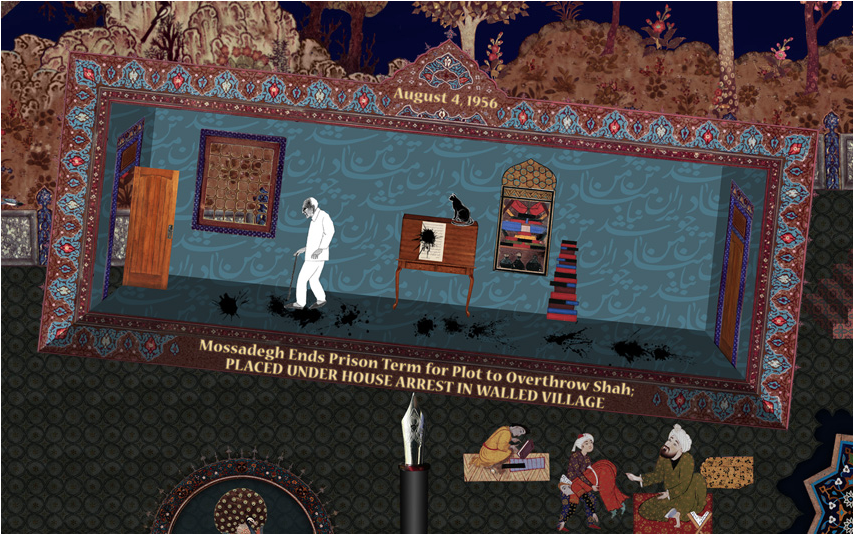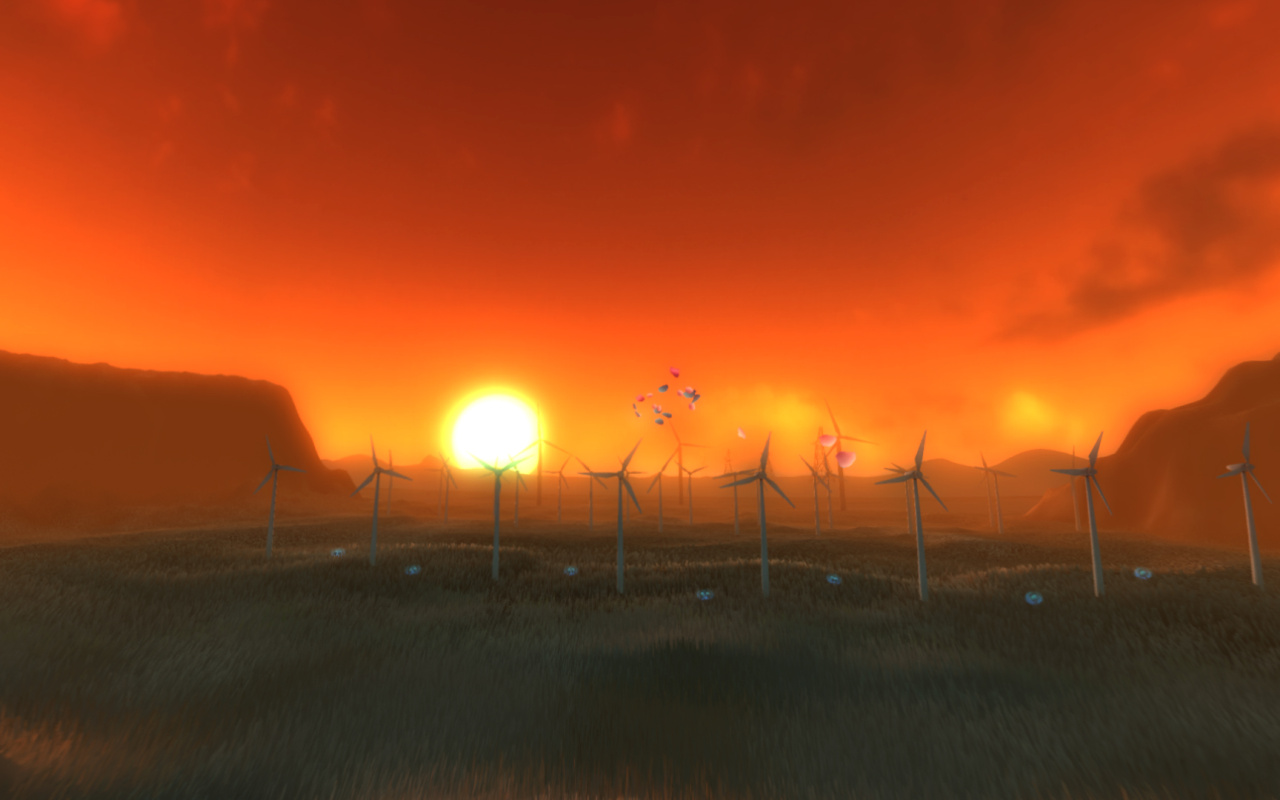Games and Politics
The touring exhibition »Games and Politics«, developed by Goethe-Institut and ZKM, travels around the world and shows the variety of computer games as a politically and socially relevant medium.
After various venues at the Goethe-Instituts in Mexico City, San Francisco, Boston & Cambridge, Jakarta, Hanoi, Sao Paulo as well as Manila and Novosibirsk in 2017, the 2018 exhibition project was shown in Singapore, Nancy, Skopje, Bangkok, Luxembourg, Kuala Lumpur, Yangon, Wellington and Madrid. In 2019 and 2020, further venues will follow in Brussels, Rijeka, Istanbul, Nicosia, Belgrade, Sarajevo, Ramallah, Colombo, Chennai, Mumbai, New Delhi and Toronto!
Computer games transport real-world references, meanings, and ideologies, and can hence function as political and social media – in a positive, enlightening way or in the sense of seductive propaganda. This was shown in the GLOBALE exhibition »Global Games«, which took place 2015-2016 at the ZKM.
Whether computer games are seen as a political issue, as an entertainment medium or – even – as art, they all have to be viewed in a contextual manner. Every game positions itself in a society and picks it out as the central issue at the same time.
A political relevance can be postulated for all computer games, even and especially if they seem to evade any kind of political action. Because the following holds true even in these games: The players issue directions but must play by the rules of the game in order to be able to play at all. At the other end of the spectrum are games which are consciously used for the purposes of political education or propaganda objectives in view of an otherwise hard-to-reach target group.
Based on computer games from the last twelve years which have had obviously political ambitions, it asks about the opportunities and limits of the genre to design a counter-position within the entertainment industry.
On one hand, this counter-position can be formulated in simulation of the contingency of political decision making itself, or in the explicitly critical illustration of social conditions and grievances, which unifies all the games shown in the exhibition. Within the games, precarious working conditions can be the central theme in the same manner as gender issues, the surveillance state, the consequences of war, the handling of refugees or revolutions against totalitarian systems.
But can the game still be a political game in the art institution museum? And is the computer game a suitable medium for dealing with such complex political themes?
With the exhibition »Global Games« the ZKM | Center for Art and Media Karlsruhe highlights the increasing relevance of computer games by presenting the latest developments in this field. The computer game is a child of the digital revolution and thus a medium produced by the infosphere. The effects of globalization and real-world references are strongly reflected in computer games. Games thematize such topics as the Syrian conflict, the deployment of drones in war zones (»Unmanned«), the globalized economic interconnectedness of international finance (»Cart Life«), surveillance (»Vigilance 1.0«, »TouchTone«), the situation of refugees at the European borders (»Frontiers«, »From Darkness«), deplorable social states of affairs caused by turbo-capitalism (»Outcasted«), as well as gender issues (»Perfect Woman«, »Dys4ia«), to name but a few. They pose moral questions (»Papers«, »Please.«) and deliver history lessons (»The Cat in the Group«).
The effects of globalization and other real-world reference points are clearly reflected in computer games.
Computer games are in no way a purely Western phenomenon, but must be considered a global medium. Games are produced and played all over the world. Little known are computer game productions from the Arab world and the Near East. Two noteworthy examples are from Syria and Iran. Published by Syrian game developer Dar al-Fikr and played from a Palestinian perspective, the shooter »Under Ash« (2001) and its follow-up »Under Siege« (2005) stage the battle against Israel during the second Intifada from 1999 to 2002. And the Iran Computer & Video Games Foundation promotes Iranian games, presenting them at such computer game trade fairs as the Gamescom in Cologne.
The game »Phone Story« shows the dark side of the iPhone and is therefore censored by Apple in the App Store.
In the exhibition »Phone Story« can be played as intended: on an iPhone.Games can also be used as teaching aids (»Kerbal Space Program« and »Ludwig«, for example) for use in high school physics courses. By informing about waste separation, the game »Die Müll AG« [Garbage Inc.] aims to raise children's awareness of the topic.
Conversely, the procedural rhetoric is also used as propaganda, as demonstrated in the game »America's Army«, commissioned by the US government as a recruiting tool and distributed free of charge.In the independent scene, there are signs of an emerging awareness for antiwar games, as demonstrated, for example, by the German game »Spec Ops: The Line«. In the exhibition we present »This War of Mine«, from Polish developer 11 bit studios, which conveys an experience of war from the perspective of civilians.
Computer games provide commentary on current world events. The game »September 12th: A Toy World«, by Gonzalo Frasca from Uruguay, uses simple caricaturistic means to present the spiral of violence propelled and entrenched by the US War on Terror. The game »Yellow Umbrella« ties directly into recent protests in Hong Kong.
Another example of caricature is »Faith Fighter« by Paolo Pedercini. While referencing such genre classics as »Street Fighter II«, this beat 'em up does an ironic take on their stereotypical – and even racist – portrayal of fighters from around the world, as it pits representatives of the major world religions against each other. Jesus faces off against, among others, Buddha and Mohammed.
»Games and Politics« shows the range of computer games as a politically and socially relevant medium and encourages not only playing, but also thinking and questioning!
Moreover, the apparent paradox of serious play – in so-called »serious games« – evidences not only the scientification of our culture and the trend toward new tools driving the exo-evolution. Computer games represent a popular form well suited for the illustration of socially relevant processes of globalization, radical changes in the media, and digitalization. Computer games are powerful new tools.
Venues of the exhibition: |
| 2020 | Toronto, Canada | |||
| 2020 | Region SAS (Colombo, Chennai, Mumbai, New-Delhi), Indien / Sri Lanka | |||
| 2020 | Ramallah, West Bank | |||
| July 2019 | Banja Luka via Goethe-Institut Sarajevo, Bosnia and Herzegovina | |||
| May–June 2019 | Belgrade, Serbia | |||
| May 11–June 2, 2019 | Goethe-Institut Beijing, China | |||
| April 23–May 15, 2019 | Goethe-Institut Lagos, Nigeria | |||
April 8–May 20, 2019
| Nicosia, Cyprus | |||
April 5–May 18, 2019 | Cermodern Ankara, Turkey | |||
| March 29–April 27, 2019 | Goethe-Institut Shanghai, China | |||
| February 22–March 16, 2019 | Istanbul, Turkey | |||
| January 17–February 2, 2019 | Goethe-Institut Zagreb, Rijeka, Croatia | |||
| January 1–February 2, 2019 | L'Iselp, Brussels, Belgium | |||
September 21–November 3, 2018 | Conde Duque Madrid, Madrid, Spain | |||
| August 16–September 23, 2018 | The Physics Room, Christchurch, New Zealand | |||
| July 10–23, 2018 | Goethe Villa, Yangon, Myanmar | |||
| May 9–June 9, 2018 | Athens Conservatoire, Athens, Greece | |||
| May 4–20, 2018 | Lostgens' Art Space, Kuala Lumpur, Malaysia | |||
| April 20–May 21, 2018 | Neumünster Abbey, Luxembourg City, Luxembourg | |||
| March 17–April 12, 2018 | Commde-Design Center, Bangkok, Thailand | |||
| February 7–25, 2018 | FINKI-Faculty of Computer Science and Engineering, Skopje, North Macedonia | |||
| January 30–February 23, 2018 | ||||
| January 12–February 12, 2018 | Kult Galery, Singapore | |||
| October 12–November 5, 2017 | Cinema Pobeba, Novosibirsk, Russia | |||
| September 21–October 21, 2017 | Ateneo de Manila University, Quezeon City , Philippines | |||
| August 4–27, 2017 | Goethe-Institut Hanoi, Vietnam | |||
| May 8–27, 2017 | Goethe-Institut Jakarta, Indonesia | |||
| June 24–July 30, 2017 | Centro Cultural de Sao Paulo, Sao Paulo, Brazil | |||
| April 21–May 21, 2017 | Boston Cyberarts Gallery, Boston, USA | |||
| April 7–8, 2017 | German American conference Harvard, Cambridge, USA | |||
| April 10–14, 2017 | Goethe-Institut Boston & MIT GameLab, Cambridge, USA | |||
| April 7– May 21, 2017 | Goethe-Institut Boston & Cambridge, USA | |||
| March 15–29, 2017 | Goethe-Institut Washington, Washington D.C., USA | |||
| February 17–March 3, 2017 | Goethe-Institut San Francisco, San Francasico, USA | |||
| November 16, 2016–January 15, 2017 | Goethe-Institut Mexiko-City, Mexico City, Mexico |
The current ZKM exhibition »zkm_gameplay. the next level« invites you - by reading and playing - to gain insight into the history and present of computer games.
The gaming platform is divided into five themes: 1. the beginnings of computer game culture; 2. games that tell stories in a special way; 3. games that experiment with new interfaces, 4. games that take up social and political topics; and 5. a look at current developments and playful experiments.
Here you will find an overview and a selection of the presented works:
-
A cooperation by
